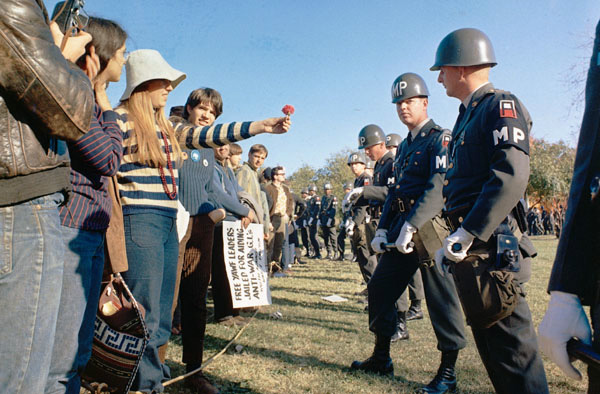Location

A female demonstrator offers a flower to military police on guard at the Pentagon during an anti-Vietnam demonstration, 1967, National Archives
"We shall not wilt. Let a thousand flowers bloom." — Abbie Hoffman, Workshop in Nonviolence, May 1967
The expression "flower power" was coined by the American beat poet Allen Ginsberg as a way to re-visualize war protests into peaceful affirmative spectacles. Like seeds of flowers, war contains within it all life compressed. Because human beings are fragile in the face of it, time seems to stop. The immediate moment can seem like a year. All that we love becomes more precious even as we are numbed by violent circumstances.
Though war has not gone away despite exhortations of the peaceful, when the lens is brought close to the particulars of a soldier, veteran, or involved civilian’s life, we may see truth and beauty in small daily things, little gems that reflect the whole, a fly’s eye of brilliant perception.
War is also a deep penetration of all trauma. Veterans of war and rape victims are known to present similar symptoms in a therapeutic setting. The post-traumatic stress symptoms that afflict many veterans—men and women alike—reflects all violent life. But poetry, with its affinity for fragmentation, image, and metaphor, can be an effective therapeutic tool for finding the words to articulate, re-vision, and re-frame trauma, and promote healing.
In this course we will write poetry from exercises particular to the subject. We will read significant war poets from Homer to the present, and let them be guides to our own composition. Be prepared to go deep.
Teaching Artist: Doug Anderson
Suggested donation: $25 | Veterans: Free










